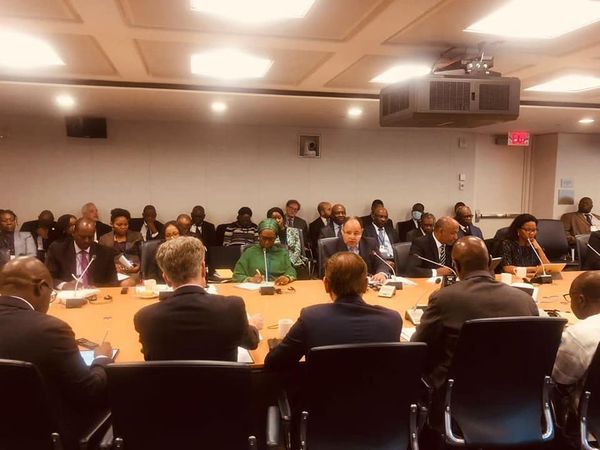The Egyptian government has taken a series of proactive measures to overcome the negative impacts of coronavirus pandemic and the war in Ukraine.
Egypt’s economy has become more robust in facing internal and external challenges thanks to the implementation of the economic reforms enacted by the state in the last few years.
These remarks by Minister of Finance Mohamed Maeet came during a meeting on Thursday with his African counterparts on the sidelines of the International Monetary Fund (IMF) and the World Bank (WB) meetings in Washington.
Current global crises require flexible solutions to diversify sources of funding and attract more investments, the minister said.
Emerging economies and developing countries are most affected by the negative repercussions of the war in Ukraine, leading to sharply rising inflation, which makes basic goods and fuel more expensive due to disruption of global supply chains, the minister added.
All African countries should rally efforts to push production forward and achieve economic and development goals in the entire continent, Maeet said.
Egypt has also adopted initiatives and programmes to expand the social protection umbrella, notably the Takaful and Karama programme with 22 million beneficiaries, in addition to disbursements of emergency aid to 9.1 million families of the most vulnerable groups for a period of six months, and improving wage and pension structures, Maeet added.
The minister spoke of greater international co-operation to help African countries reduce debt burdens and enable them to withstand global shocks.
African food security, which has become an urgent priority, requires the best means to exploit available resources, he said.
“With more agricultural and industrial production in Africa and possibility of forming African supply chains, our continent could be the ‘bread basket’ of the world,” the minister said.
“Agriculture employs 70 per cent of Africa’s labour force and accounts for 25 per of gross domestic product,” he added.
The minister spoke of the creation a comprehensive exchange mechanism for basic commodities between African countries, especially wheat and fertilisers, thereby expanding intra-African trade.






Discussion about this post